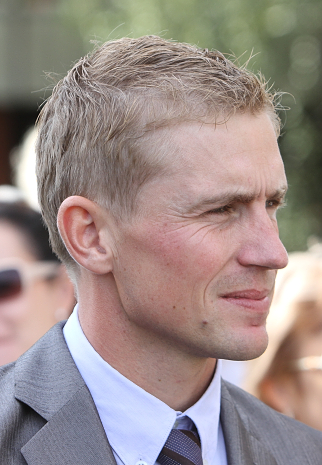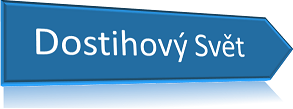Trainer Václav Luka speaks about a successful season in France, and other things

Thirteen does not always have to be an unlucky number. Václav Luka’s thirteenth season as a trainer has been very successful. Not just at home in the Czech Republic, where it is sufficient to mention his classic winner, Nagano Gold, but also abroad. His last runners in France in December brought the lifetime winnings of his horses up to a total of 60 million crowns [EUR 2.2 million]. The main part of our conversation with Václav Luka jnr. will be about the season in France, but we will also find out some news from the training centre at Bošovice [near Písek, in South Bohemia]
Last Friday, your horses travelled to France for the last time this year. Can we now evaluate your whole season, which brought 17 winners, including 12 in France. Wireless’s win in a Listed race at Maisons-Laffitte deserves a special mention. Are you satisfied with the season?
Yes, I can say that I’m extremely happy with this season. We had a successful year here in the Czech Republic, too, where our horses only run from time to time. We had a classic victory, and we were successful on Derby day and at the European Jockeys Cup meeting. And in France, it was clearly the most successful year in all our history, though that’s not exactly how I’d like to present it. It always depends on the horses that you currently have in the stable, their health, luck in the running, and things like that.
Can we also say that this was the year when the biggest number of your horses were aimed at races in France?
I think it was about the same as last year. The last two seasons we’ve had more horses for racing abroad than we’ve had for the Czech season. There were about eight horses that ran regularly in the Czech Republic, so about 80% ran abroad, mainly in France.
Which do you rate as your best winners in France?
I definitely have to mention Wireless’s performances. He managed to win a Listed race, and he was also placed three times in group races, including a close second place in the Group 3 Prix Quincey Barrière. Winning a black-type race at Deauville was a great experience. In terms of quality, these are of course the top races, but personally I also value our results in Tiercé Quinté races. They are much harder to win. In group races, there are 6 or 7 runners, but in these handicaps, with prizemoney of about EUR 55 000, like for Listed races, there are 16 or 17 runners. So there’s a much smaller chance of finishing well up the field. These races arouse great interest in France, and the media pay a lot of attention to them.
I appreciate the fact that we had an 85% success rate in these races this season, in terms of finishing first or being in the prizemoney. Of course, black-type races are important from the point of view of breeding, but they are for a chosen few. Horses for black-type races mostly cost a lot of money, but I think it is easier to prepare a horse for them than for the Quinté handicaps, in which so many horses of similar performance all race against each other. I’d emphasize again how popular these Tiercé Quinté races are. We were sitting in a patisserie one day, and an unknown person came up to me. He’d recognized me, and he came over and asked me about our horse. He recognized me because of the Quinté races.
And I’d like to mention something else. After last year’s emergency at Deauville racecourse, I was able to ensure that a Czech flag was also flown at Chantilly. I’m proud of that!
Running horses in France in such numbers as your training centre does is very demanding in terms of logistics and also time. Haven’t you considered renting a yard in France where your horses could stay for a while, and not travel from the Czech Republic for each race?
An offer of stabling at a racecourse was made to me by France Galop, but I am not seriously thinking about it. Not only because of the cost, but also for the comfort and relaxation of the horses. We’ve checked it out. It’s better to be at home in Bošovice and travel for the races. It is demanding logistically to run horses so far away from Bošovice, of course. It’s also tough for the staff who look after the horses and travel with them. I really appreciate my people and their approach to the work. Of course, it simply couldn’t be done without them. I’m aware that working with horses is very demanding, and some people of course drop out, but I guess that’s normal everywhere. I try to show my appreciation for the team that carries out our campaigns. Overall, I think that France and year-round racing is in the interest of all concerned, and it makes sense to carry on dedicating ourselves this way.
Have you calculated how much your horses have made in winnings at races abroad this year?
I’d like first of all to point to the results of Partyday in races in Germany, which have been rather overlooked. She was placed second three times in a row in black-type races, which no horse from here had done before. It’s a pretty remarkable performance. Partyday won EUR 20 000 for her owners in Germany, and in France, together with owner’s prizes, our horses have won EUR 650 000. That makes an overall total of EUR 670 000 won abroad. I’m mentioning the owner’s prizes here, because they provide very considerable financial support in France. As an example, when he won at Deauville last week, Donuts Reyor made EUR 40 000, including the owner’s prize. EUR 25 000 of that was the prize for finishing first, and then 64% of the winnings was added as the owner’s prize. The French do also have their problems - for example the reconstruction of the racecourse at Longchamp cost more money than had originally been estimated - but the owner’s prize payments aren’t expected to be cut back next year.
I’d also be interested to know how long the journeys are that you have to make to the racecourses. How many kilometres is it from Bošovice to the nearest racecourse, and what are the longest journeys that you make?
The nearest is Strasbourg, which is about 650 kilometres. As far as the greatest distance that we’ll travel on the day before the race is concerned, I’ve set 1 250 to 1 300 kilometres as the maximum. I mainly try to go for races only on Category A racecourses, mainly in and around Paris, that’s to say the top league. The level of the racing is quite somewhere different from in the provinces, and there is no problem with finding riders. The small courses are variable, and the prize money is much lower, and the races are run differently from at the big racecourses. I try not to the change the way the horses run, and I’ve chosen the toughest option, but I have no regrets about that.”
With the number of horses that you had for races in France, it must have been very hard to place them in races. Several times you had runners at two racecourses in France on the same day. As well as being the trainer, you must need to be a good organizers and manager!
Setting everything up for racing abroad is indeed very demanding, and it often affects our private life. Several times in the course of the season, we had runners on three fronts on the same day, when there were races here in the Czech Republic, or in Germany. Everything has to work out, because the runners in France are only known two days before the race. I always worry about something unexpected happening at the last moment, maybe an injured horse or a transport problem.
You’ve sent horses to run in France that have had some kind of career here. But I think that the horses you’ve had most success with were purchased out of seller’s races in France. How do you go about selecting a horse that’s promising for racing in France?
I’ve chosen the route of buying horses in France. From a race in which I’ve seen it run. Of course, there are risks, as there always are when you buy an animal. As for selecting a horse at big racecourses in France, I watch the horses running there regularly and over a period of time. I think I now have a better overview of French horses than of Czech horses. Then I tip owners off about a horse they might buy. When I give tips about horses, I have to go mainly on my feelings, but of course there is quite a lot of luck involved. However, I do think it’s necessary to have horses from each age category in the stable.
As we’ve already mentioned, this year’s long and successful season is already over. I assume, though, that as in previous seasons we will see your horses out at the beginning of January at some French racecourses.
Yes, if the weather is favourable we plan to race at Deauville on January 5th and 6th. In the winter period, we have about twelve horses in training.
How many changes will there be in the horses in your training centre after the end of the season?
Noone is leaving the stable, and it’s full. Only in the case of Partyday the owners are making up their minds whether she is going to run again next year or go to stud. The decision should be made some time in January. Next year, we will have a lot of two-year-olds. We now have fourteen yearlings. They include some by Champs Elysees, Oasis Dream and other interesting stallions. We’ll have a lot of horses next year. Some of them are already past their best, and they are not going to get any better. However, our owners are reasonable, and they know that, one day, that’s going to happen. I’m very happy that our collaboration goes very well. The trainer–owner relationship is mainly about trust and collaboration, which is not always how it turns out. That makes me all the happier that we always reach an agreement with owners, and we are in fact partners, or friends. I’m very grateful, because that certainly helps towards the final results.
It will soon be Christmas and then the beginning of the new year. Do you have some wishes for yourself, and for Czech racing?
This is a time of goodwill, and at the same time it’s a hectic period. My wish is therefore for time to stand still for a while. Everything is in a rush, and we don’t have time to meet with friends and have a bit of peace and quiet. Everyone wants good health, which is of course very important, but it has become a cliché. My wish is to slow down, and have more time for family and friends.
My wish for Czech racing is that the present uncertain future should become a certain future. Czech racing will always be important for me. I think I’ve done quite a lot for it, and even if my horses do not run here much I still recognize its importance. Czech racing must carry on, we can’t do without it.
***
This interview first appeared in the Fitmin Turf webpages on December 22nd, 2017, in Czech language. The interview was taken by Michaela Zemanová. Translated by Robin Healey.
